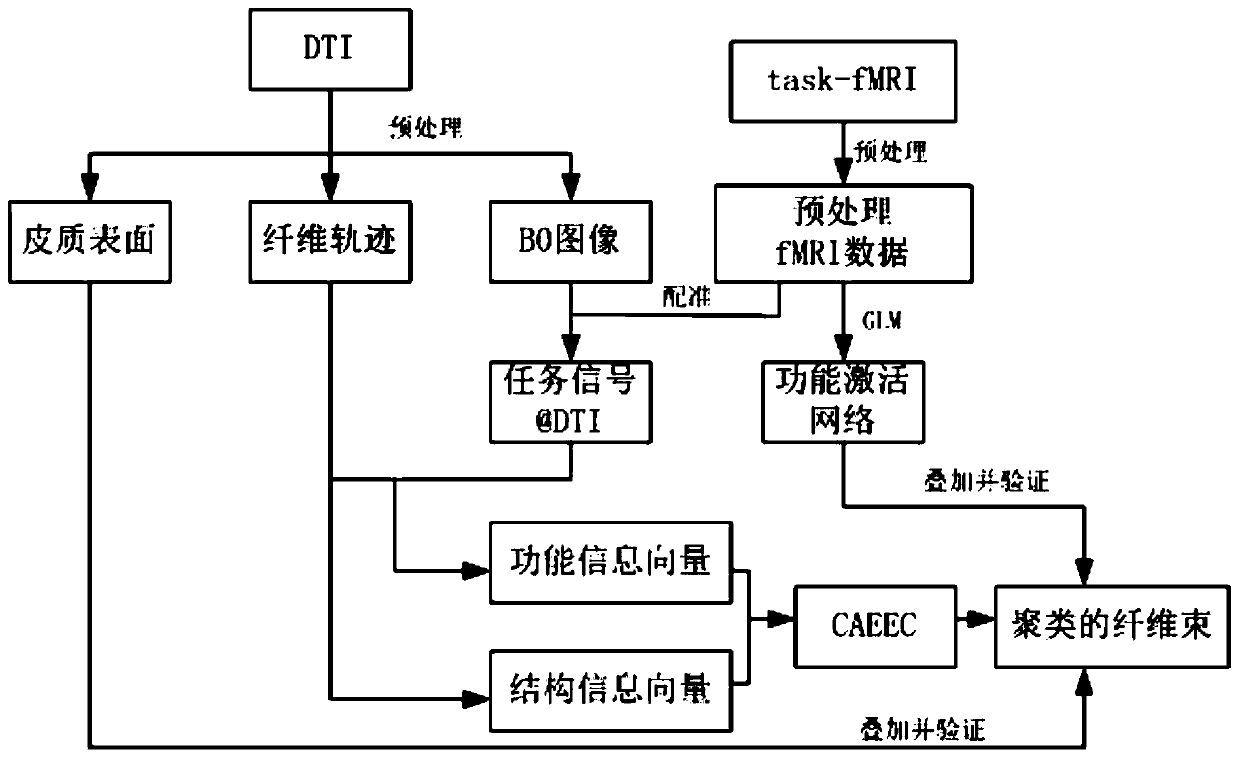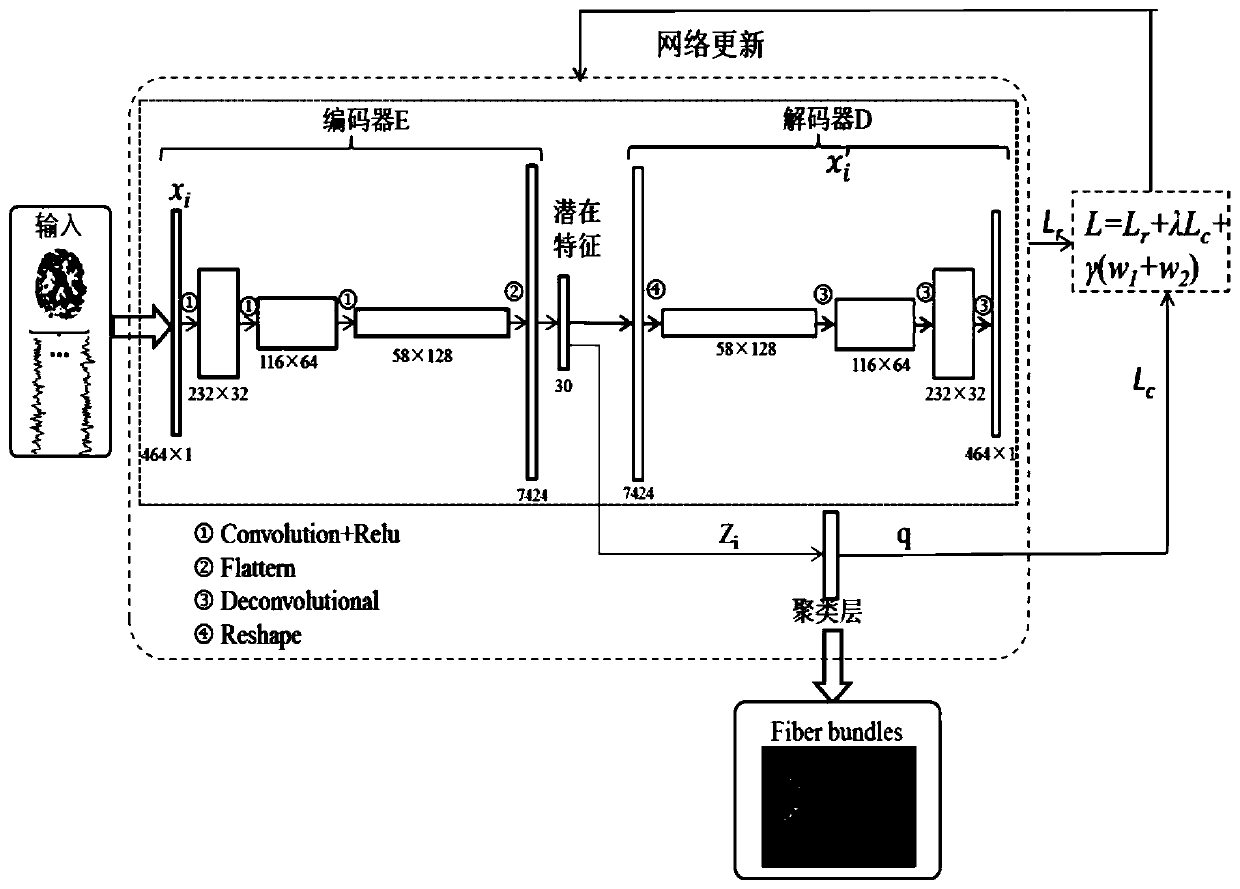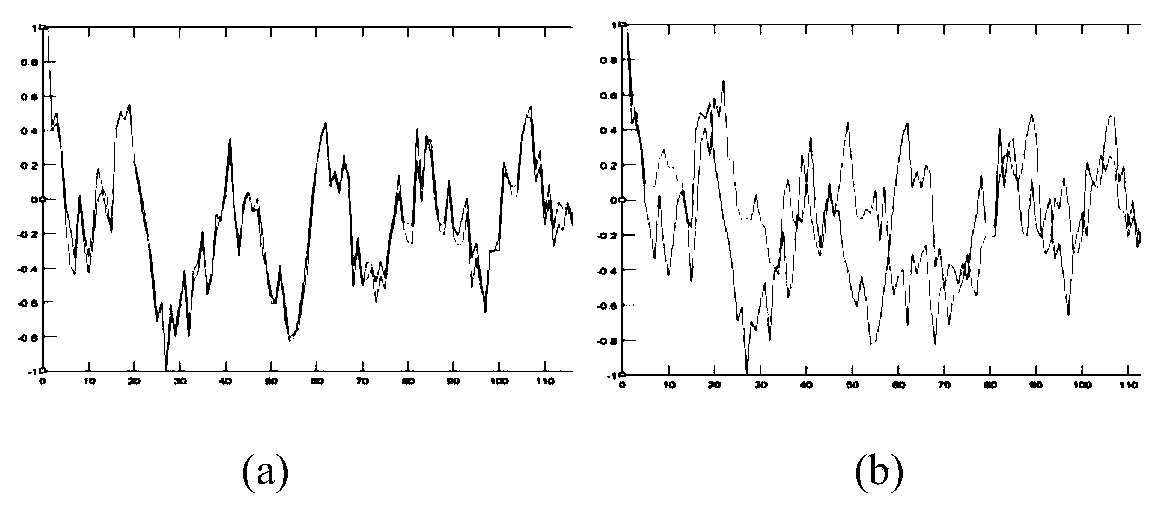Brain white matter fiber deep clustering method guided by tag-fMRI
A clustering method, a technology of white matter in the brain, applied in the field of medical image processing and deep learning, which can solve the problem of unclear function and meaning of fiber tracts
- Summary
- Abstract
- Description
- Claims
- Application Information
AI Technical Summary
Problems solved by technology
Method used
Image
Examples
Embodiment Construction
[0043] The basic idea of the present invention is: use task-fMRI data to obtain the functional information of white matter fibers, use DTI data to obtain the structural information of white matter fibers, combine the two to represent a white matter fiber, and use it as a convolutional autoencoder embedded in clustering The input is clustered. The convolutional autoencoder embedded with clustering can better extract the hierarchical structure of fibers and preserve the local characteristics of the data in the feature space, thus achieving better clustering effect.
[0044] The present invention extracts the average task-fMRI signal on the fiber track to represent the fiber, so that the result of fiber clustering has a clear functional meaning, and combines the structural information from DTI data to further limit and optimize the clustering result structurally; The two kinds of information are jointly input into the cluster-embedded convolutional autoencoder (CAEEC) to genera...
PUM
 Login to View More
Login to View More Abstract
Description
Claims
Application Information
 Login to View More
Login to View More - R&D
- Intellectual Property
- Life Sciences
- Materials
- Tech Scout
- Unparalleled Data Quality
- Higher Quality Content
- 60% Fewer Hallucinations
Browse by: Latest US Patents, China's latest patents, Technical Efficacy Thesaurus, Application Domain, Technology Topic, Popular Technical Reports.
© 2025 PatSnap. All rights reserved.Legal|Privacy policy|Modern Slavery Act Transparency Statement|Sitemap|About US| Contact US: help@patsnap.com



